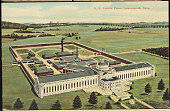Vladimir Putin is a bad guy. He is an enemy of democracy — not just in Russia but also abroad.
Jan 31, 2022 08:34:46 #
crazylibertarian wrote:
Vladimir Putin is a bad guy and an enemy of democracy?
So were Stalin, Khrushchev & Mao but the Left has always thought we should treat them with kid gloves.
So were Stalin, Khrushchev & Mao but the Left has always thought we should treat them with kid gloves.
That is not true.
It was trump who was powdering their azzez.
And as far as wisdom about Stalin , Krushchev and Mao ;
“Never Fk with people who have Less to lose than you !”
You should write that down somewhere.
I can see you getting yourself into heaps of trouble .
Jan 31, 2022 08:54:28 #
Milosia2 wrote:
Vladimir Putin is a bad guy. He is an enemy of dem... (show quote)
If Millosia does not like Putin; he cant be all bad.
How about going after Communist China, the real threat to the West?
Jan 31, 2022 09:07:26 #
eagleye13 wrote:
If Millosia does not like Putin; he cant be all bad.
How about going after Communist China, the real threat to the West?
How about going after Communist China, the real threat to the West?
How about you throw out all the Chinese junk in your house.
Jan 31, 2022 09:39:35 #
Milosia2 wrote:
How about you throw out all the Chinese junk in your house.
I could if everything was not made in Communist China.
Something that our Federal government favorable trade policies have created.
Jan 31, 2022 09:45:28 #
eagleye13 wrote:
I could if everything was not made in Communist China.
Something that our Federal government favorable trade policies have created.
Something that our Federal government favorable trade policies have created.
It’s still your choice , not theirs .
They were created after 1980 when we decided that supplyside economics would work very well for the Few, but not for the many.
China needs us now. They’re more or less dependent on us.
We need to manufacture our own stuff.
Government buys supplies for all of the government buildings , and anything else the government owns.
We should be manufacturing that stuff here.
Sam Walton has been rolling in his grave since all of his stores that once sold
Made in The USA have their shelves filled with Chinese junk.
8 of Waltons heirs are Now
top 10 billionaires .
Not to mention the plethora of American Businesses that have been tossed aside to make room for China.
Taking America Back , suddenly has a different connotation.
More like Bringing America Back !
Vote American !
Be American !
Not Chinese or Russian .
American !!!!
Stop buying nonsense from the right to keep the Billionaires Rich !
For those who will jump to to
“Whattabouts the Costs?”
I ask
“What are the costs of Not Doing This ?”
Jan 31, 2022 09:52:29 #
Milosia2 wrote:
It’s still your choice , not theirs .
Our problem, the US trade policy's creation.
BTW; Lets not ignore the Biden family's Red Chinese financial connections.
Jan 31, 2022 09:53:23 #
crazylibertarian
Loc: Florida by way of New York & Rhode Island
Milosia2 wrote:
That is simply not true.
You need to brush up on your history.
Jan 31, 2022 11:58:23 #
crazylibertarian wrote:
You need to brush up on your history.
No I don’t.
Jan 31, 2022 12:09:57 #
eagleye13 wrote:
I could if everything was not made in Communist China.
Something that our Federal government favorable trade policies have created.
Something that our Federal government favorable trade policies have created.
Our Federal Government is composed of…
You !
Take your power back. You should be telling the corporations what to do, not Vice versa .
You had the power when this country started. So , what happened ?
Somebody gave it all away .
Not the Dems, not the Republican,
Not the middle class not the kindergarten teachers, but ,
Who ?
We, like frogs in pots, enjoyed the warm water , until now when it got too ffing hot.
So , now is not a time to blame
Anyone.
Now is a time to target what our losses were and bring them back.
We have the power. But as long as we continue squabbling among ourselves ,
Nothing gets done , and they win.
Not you ,not me, …. they win !
As they are winning today mostly on a platform based on lies.
American Up !
Boys and Girls!!!!
It’s time to
American Up !!!!!
Not commies , not fascists
All Americans.!
Jan 31, 2022 13:15:26 #
Milosia2 wrote:
Vladimir Putin is a bad guy. He is an enemy of dem... (show quote)
What can you expect from a former KGB thug?
Jan 31, 2022 13:34:19 #
crazylibertarian
Loc: Florida by way of New York & Rhode Island
Milosia2 wrote:
No I don’t.
I suggest you read The Forgotten Man by Amity Scluaes.
Jan 31, 2022 13:56:19 #
saltwind 78 wrote:
What can you expect from a former KGB thug?
You mean the same KGB thug that Hillary and Obama reset relations with? 😂
How is that going anyway?
Don't you find it the least bit interesting Putin only acts up when Democrats are in office?
It like he senses weakness.
Jan 31, 2022 14:01:21 #
the waker wrote:
You mean the same KGB thug that Hillary and Obama reset relations with? 😂
How is that going anyway?
Don't you find it the least bit interesting Putin only acts up when Democrats are in office?
It like he senses weakness.
How is that going anyway?
Don't you find it the least bit interesting Putin only acts up when Democrats are in office?
It like he senses weakness.
"It like he senses weakness"
That he does!
Jan 31, 2022 15:22:23 #
Jan 31, 2022 15:42:06 #
WEBCO wrote:
Why, as a Marxist, do you not like Putin?
"Why, as a Marxist, do you not like Putin?" - WEBCO
You are asking who?
If you want to reply, then register here. Registration is free and your account is created instantly, so you can post right away.



